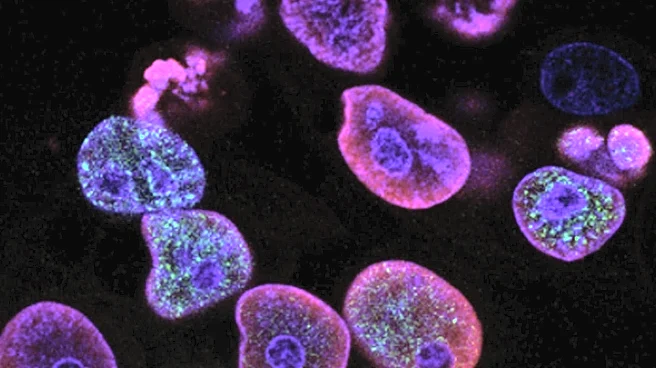What's Happening?
Recent research conducted at the New York University School of Medicine has identified a significant loss of macrophages in the upper dermis as a contributing factor to skin capillary aging. The study utilized advanced imaging techniques to track red
blood cell flow through capillary vessels, revealing that macrophages in the upper dermis are lost at a greater rate than those in the epidermis and lower dermis. This loss impacts the superficial capillary plexus, which is crucial for nutrient exchange in the skin. The research involved breeding and maintaining mice under specific-pathogen-free conditions and employing various imaging and experimental techniques to observe the effects of macrophage depletion and expansion on skin capillaries.
Why It's Important?
The findings of this study have significant implications for understanding the aging process in skin tissues. By identifying the role of dermal macrophages in capillary aging, the research opens new avenues for potential therapeutic interventions aimed at mitigating age-related skin deterioration. This could benefit industries focused on dermatology and anti-aging treatments, as well as inform public health strategies for maintaining skin health in aging populations. The study also highlights the importance of macrophages in maintaining capillary function, which could have broader implications for vascular health.
What's Next?
Future research may focus on developing treatments that target macrophage preservation or restoration in the skin to prevent or reverse capillary aging. Additionally, further studies could explore the application of these findings to human skin aging and investigate potential links to other age-related vascular conditions. The research community may also look into the genetic and environmental factors that influence macrophage loss and capillary aging.
Beyond the Headlines
The study raises ethical considerations regarding the use of animal models in research, emphasizing the need for humane treatment and adherence to ethical guidelines. It also prompts discussions on the long-term implications of skin aging research, including the potential for personalized medicine approaches that cater to individual aging profiles.

















